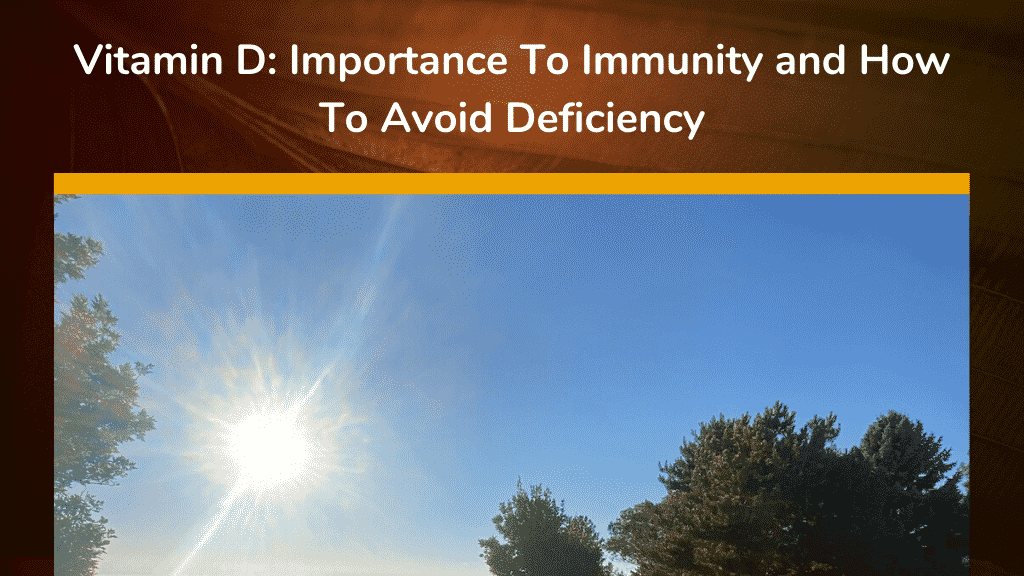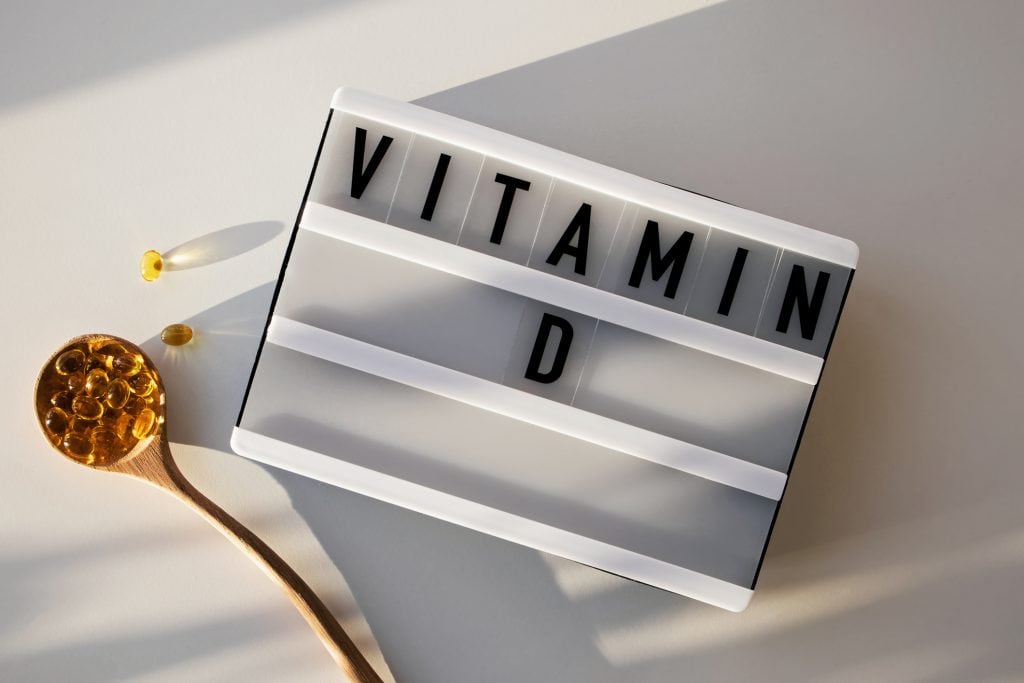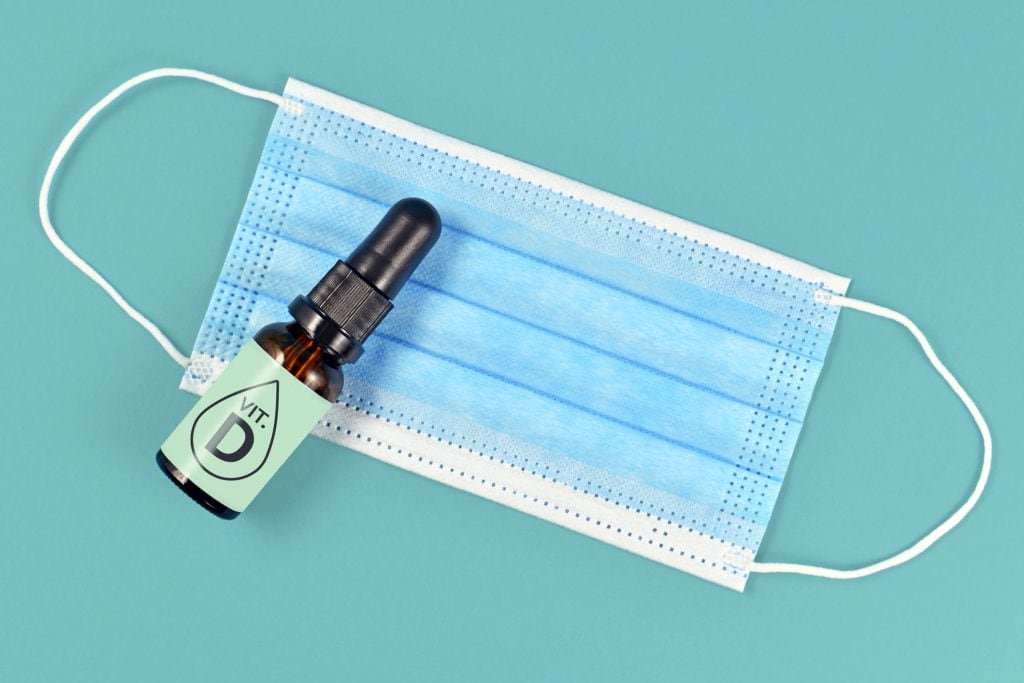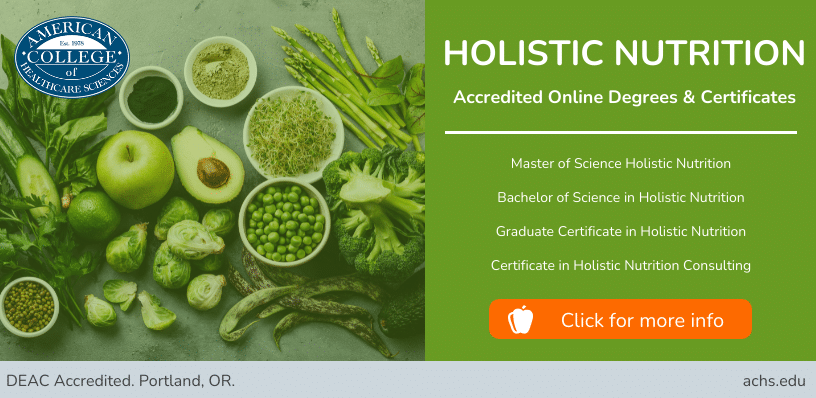
Overview
Known as the sunshine vitamin, Vitamin D is both a hormone and a vitamin and can be both absorbed from dietary intake and produced in the body through the action of sunlight. A 20-minute walk in the sun stimulates the body’s production of vitamin D (although it is inhibited in cooler climates, by sunscreen, and impacted by age). Over 60 years of age, a reduction in the synthesis of vitamin D in the skin becomes apparent, increasing as one gets older.[1]
Deficiencies Are Common
With somewhat limited dietary sources and the factors outlined above that may limit the role of sunshine and vitamin D production, it is not surprising that deficiencies are common.
According to the Scientific Report of the Dietary Guidelines Advisory Committee, intakes of Vitamin D generally range from 4.1 to 5.3 micrograms (µg) per day, with the average American consuming 4.9 µg of vitamin D per day, placing nearly all Americans (94 percent) with dietary intakes below the Estimated Average Requirement (EAR) of 400 IU.[2] [3]
Although no differences in vitamin D intakes are observed by income, non-Hispanic Black individuals have a slightly higher prevalence of risk (97 percent) of inadequacy relative to other race-ethnic groups.[4]
Vitamin D deficiency can cause rickets in children and osteomalacia (the adult equivalent), retarded growth, and leads to reduced bone formation in children, osteoporosis in adults, muscular weakness, muscle spasms, lack of vigor, fast heartbeat, and premature aging. Several studies have linked low vitamin D rates with various types of cancer, including colon, prostate, breast, lung, pancreas, and colorectal cancer, and increased incidence of multiple sclerosis, diabetes, heart disease, and osteoporosis
The Scientific Report of the 2020 Dietary Guidelines Advisory Committee lists vitamin D as a nutrient of public health concern for all ages and genders.[5]

Importance During the COVID-19 Pandemic
Vitamin D impacts multiple body systems, is critical for optimal bone health, and may have non-skeletal roles.[6] Vitamin D is involved in normal cell growth and maturation and in regulating the immune system. Understanding the importance of vitamin D and its essential role in immune health[7] is even more vital in 2021 and onwards with the continued challenges that the COVID-19 pandemic presents and the threat of future pandemics.
Research Studies
A 2020 retrospective multicenter study of 212 cases using the databases of three hospitals in Southern Asian countries with laboratory-confirmed infection of SARS-CoV-2 was conducted. Medical records were reviewed for data relating to clinical features and serum 25(OH)D vitamin D levels. (The 25-hydroxy vitamin D test is the best way to monitor vitamin D levels. The amount of 25-hydroxyvitamin D in your blood is a good indication of how much vitamin D your body has. The test can determine if your vitamin D levels are too high or too low. Normal levels: between 50 nmol/L (20 ng/mL) and 125 nmol/L (50 ng/mL))[8]
The study concluded that vitamin D supplementation could improve clinical outcomes of patients infected with COVID-19 based on increasing odds ratio of having a mild outcome when serum 25(OH)D level increases.[9]
This study’s conclusion was also reinforced by a June 2020 review that looked at the scientific link between vitamin D and COVID-19 and recommended that a daily dose of 4000 IU/day could be beneficial in improving the immunity to combat COVID-19 infection more effectively.[10]

How Does It Support Immunity?
Clearly, vitamin D plays an essential role in the immune system.[11] Let us take a look at the mechanisms behind this. Vitamin D interferes with the majority of the immune system’s cells, such as macrophages (types of white blood cells in the immune system), B and T lymphocytes, neutrophils, and dendritic cells, which express the nuclear vitamin D receptor (VDR).[12] Cathelicidins (which are under the control of the VDR)[13] are a family of peptides[14] formed by vitamin D stimulated expression, show a broad spectrum of antimicrobial activity against bacteria, fungi, enveloped viruses, and fungi such as corona viruses.[15] However, it should not be overlooked that most processes in the immune system initiated by vitamin D occur together with vitamin A.[16]
Other Beneficial Properties
Vitamin D’s significant role in wellness does not stop with immunity. It also aids the assimilation and regulation of minerals in the blood, such as calcium and phosphorus from the digestive tract, which has an important role with bones and the prevention of tooth decay, pyorrhea, and rickets.
Moreover, vitamin D helps regulate the heart, nervous system, and tissues through its regulation of calcium levels. It protects against food additives, lead, and insecticide residue in food. Vitamin D is essential for the health of the thyroid and parathyroid glands, and it regulates over-activity of the parathyroid.

Sources of Vitamin D
Good sources of vitamin D include:
- Egg yolks
- Butter
- Milk
- Sprouts
- Sunflower seeds
- Mushrooms
- Yogurt
- Caviar
- Herrings
- Sardines
- Salmon
- Fish liver oils
When eating fish check on mercury content to only eat the recommended weekly serving.[17] Choose wild salmon if possible or oily fish high in omega-3s. Cod liver oil is a good source if taken after a meal and with vitamin E. It is important to keep cod liver oil in the refrigerator to prevent rancidity. Dairy products are usually fortified with vitamin D, so people who do not consume much dairy can be deficient.
Vitamin D formation from sunlight requires enzyme systems in the skin, liver, and kidneys. As noted above as we age, these systems may slow down, so supplementation is recommended.
Disclaimer: This article is for informational purposes only. It is not intended to treat, diagnose, cure, or prevent disease. This article has not been reviewed by the FDA. Always consult with your primary care physician or naturopathic doctor before making any significant changes to your health and wellness routine.
References:
[1] R. Heaney, Barriers to optimizing vitamin D3 intake for elderly, Nutrition 136 (2006) 1123–1125.
[2] Institute of Medicine. Dietary Reference Intakes for Calcium and Vitamin D. Washington, DC: The National Academies Press;2011. doi: 10.17226/
13050.
[3] Dietary Guidelines Advisory Committee. 2020. Scientific Report of the 2020 Dietary Guidelines Advisory Committee: Advisory Report to the Secretary of Agriculture and the Secretary of Health and Human Services. U.S. Department of Agriculture, Agricultural Research Service, Washington, DC.
[4] Ibid.
[5] Dietary Guidelines Advisory Committee. 2020. Scientific Report of the 2020 Dietary Guidelines Advisory Committee: Advisory Report to the Secretary of Agriculture and the Secretary of Health and Human Services. U.S. Department of Agriculture, Agricultural Research Service, Washington, DC.
[6] Institute of Medicine. Dietary Reference Intakes for Calcium and Vitamin D. Washington, DC: The National Academies Press;2011. doi: 10.17226/13050.
[7] B. Prietl, G. Treiber, T.R. Piber, K. Amrein, Vitamin D and immune function, Nutrients 5 (2013) 2502–2521.
[8] Searleman, E., & Wu, B. (2019). 25-Hydroxy Vitamin D Test: Purpose, Procedure, and Results. Healthline. Retrieved 4 August 2020, from https://www.healthline.com
/health/
25-hydroxy-vitamin-d-test.
[9] Raharusuna P, Priambada S, Budiarti C, et al. Patterns of COVID-19 Mortality and Vitamin D: An Indonesian Study. April 26, 2020; Available at SSRN: https://ssrn.com/abstract=3585561, doi: https://doi.org/
10.2139/ssrn.3585561.
[10] Razdan, K., Singh, K., & Singh, D. (2020). Vitamin D Levels and COVID-19 Susceptibility: Is there any Correlation?. Medicine in Drug Discovery, 100051. Advance online publication. https://doi.org/10.1016/
j.medidd.2020.100051
[11] Biesalski H. K. (2020). Vitamin D deficiency and co-morbidities in COVID-19 patients – A fatal relationship? NFS Journal, 20, 10–21. https://doi.org/10.1016/
j.nfs.2020.06.001
[12] M. Di Rosa, M. Malaguarnera, F. Nicoletti, L. Malaguarnera, Vitamin D3: a helpful immune-modulator, Immunology 134 (2011) 123–139.
[13] Gombart A. F. (2009). The vitamin D-antimicrobial peptide pathway and its role in protection against infection. Future microbiology, 4(9), 1151–1165. https://doi.org/
10.2217/fmb.09.87
[14] Kościuczuk, E. M., Lisowski, P., Jarczak, J., Strzałkowska, N., Jóźwik, A., Horbańczuk, J., Krzyżewski, J., Zwierzchowski, L., & Bagnicka, E. (2012). Cathelicidins: family of antimicrobial peptides. A review. Molecular biology reports, 39(12), 10957–10970. https://doi.org/10.1007
/s11033-012-1997-x
[15] Biesalski H. K. (2020). Vitamin D deficiency and co-morbidities in COVID-19 patients – A fatal relationship? NFS Journal, 20, 10–21. https://doi.org/10.1016/
j.nfs.2020.06.001
[16] J.M. Mora, M. Iwata, U.H. von Andrian, Vitamin effects on the immune system: vitamins A and D take centre stage, Nat. Rev. Immunol. 8 (2008) 685–698, https://doi.org/
10.1038/nri2378.[17] Advice About Eating Fish. U.S. Food and Drug Administration. (2019). Retrieved 3 August 2020, from https://www.fda.gov/
food/consumers/
advice-about-eating-fish.
About American College of Healthcare Sciences

This commitment to our students and graduates reflects in our current survey results that reflect 98% of our students would recommend ACHS to a friend or family member.
We believe education is the most powerful tool for changing an individual and the world around us.
When a person enrolls as ACHS, it is vitally important that they graduate with tools they need to forge their own holistic and sustainable missions, build up their communities confidently and changing the face of healthcare with knowledge.
 President’s Message: End Of Year Reflectionsby American College of Healthcare Sciences●December 31, 2020
President’s Message: End Of Year Reflectionsby American College of Healthcare Sciences●December 31, 2020 Student Highlight: Wife and Husband Team Start New Businessby American College of Healthcare Sciences●December 22, 2020
Student Highlight: Wife and Husband Team Start New Businessby American College of Healthcare Sciences●December 22, 2020 Student Highlight: Holistic Health, Gratitude, and Smoothies |achs.eduby American College of Healthcare Sciences●December 17, 2020
Student Highlight: Holistic Health, Gratitude, and Smoothies |achs.eduby American College of Healthcare Sciences●December 17, 2020 3 Tips For Building Better Habitsby American College of Healthcare Sciences●December 10, 2020
3 Tips For Building Better Habitsby American College of Healthcare Sciences●December 10, 2020

7 Responses
I don’t even know how I ended up here, but I thought this post was good.
I don’t know who you are but definitely you’re going to a famous blogger if you
aren’t already 😉 Cheers!
Greetings! Very helpful advice within this article!
It is the little changes that will make the largest changes.
Thanks a lot for sharing!
It’s actually a great and useful piece of info. I am satisfied that you simply
shared this useful info with us. Please stay us up
to date like this. Thank you for sharing.
Hey there just wanted to give you a quick heads
up and let you know a few of the pictures aren’t loading properly.
I’m not sure why but I think its a linking issue.
I’ve tried it in two different internet browsers and both show the same results.
Hi, I’m sorry to hear this! The images are showing up on my end in multiple browsers but please let me know if you have this issue again with any of our blog posts and I will look into it further. Sometimes problems loading images can be fixed by clearing the cookies and cache.
Comments are closed.